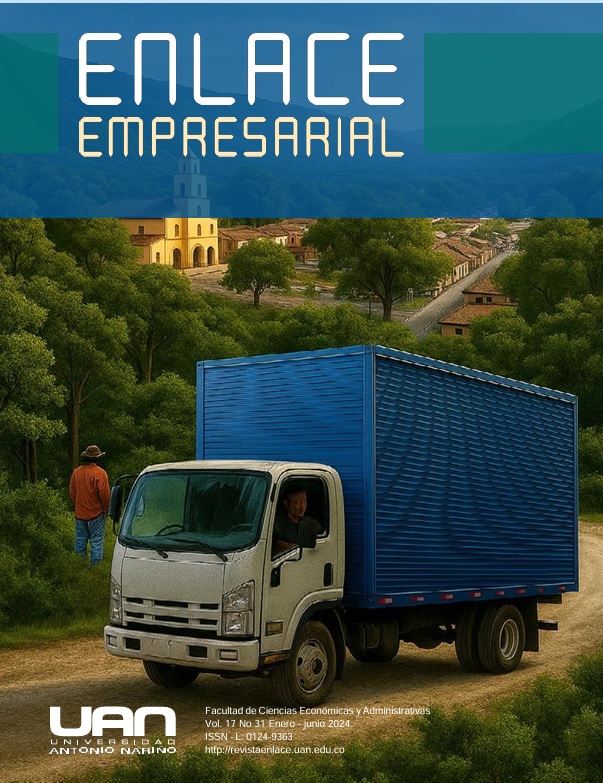Intellectual capital applied to palm oil production processes in Bogota-Colombia, a contribution to knowledge management.
Keywords:
Oil palm, production processes, knowledge management, Agricultural productionAbstract
The article explores the production of palm oil in Colombia, focusing on the tacit knowledge possessed by the actors in the sector (operators, engineers, administrators, managers and entrepreneurs) and the production methods used. The environmental consequences of these practices, such as deforestation and pollution, are analyzed and the need to reduce these impacts is highlighted.
In addition, the knowledge management models applied in the palm industry are examined to demonstrate the constructive practices of collective knowledge. Soil bioremediation is proposed as a sustainable alternative to the oil refining process, suggesting a redesign of production plans that integrates tacit knowledge and promotes more environmentally friendly practices.
The ultimate goal is to improve the sustainability of palm oil production, benefiting both the industry and the ecological environment.
References
Amazo Salazar, Juan S. – Álzate Ibáñez. Angélica M. (2018). Valoración cualitativa del impacto ambiental en una planta productora de aceite de palma en Colombia. Fundación Universidad de América. Bogotá.
González Cárdenas, A. (2017). La agroindustria de la palma de aceite en América. Palmas, 37, 215–228. Recuperado a partir de
https://publicaciones.fedepalma.org/index.php/palmas/article/view/11938
Lee, K., y Ofori-Boateng, C. (2013). Oil Palm Biomass as Feedstock for Biofuel Production. En Sustainability of Biofuel Production from Oil Palm Biomass (pp. 77-106). Singapure: Springer.
Ayala, A. (2015). Propuesta para el mejoramiento del sistema de gestión ambiental para el sector de palma de aceite en la empresa Guaicaramo S. A. (trabajo de grado).Programa de Ingeniería Ambiental y Sanitaria, Facultad de Ingeniería, Universidad de
la Salle, Bogotá, Colombia.
Conesa, V. (2010). Guía metodológica para la evaluación del impacto ambiental (4a ed.). Madrid, España: Ediciones Mundi-Prensa.Fedepalma. (2002). La palma de aceite: un producto con historia. Recuperado de https://publicaciones.fedepalma.org/index.php/palmicultor/article/download/7275/7266Fedepalma y Ministerio de Ambiente, Vivienda y Desarrollo Territorial. (2011).
Guía ambiental de la agroindustria de la palma de aceite en Colombia. Recuperado dehttp://cultivopalma.tripod.com/guiambiental.pdf
Sakaiya, T. (1985). The Knowledge Value Revolution or a History of the Future.
Published
-
Abstract175


 Portal de Ciencia Abierta
Portal de Ciencia Abierta